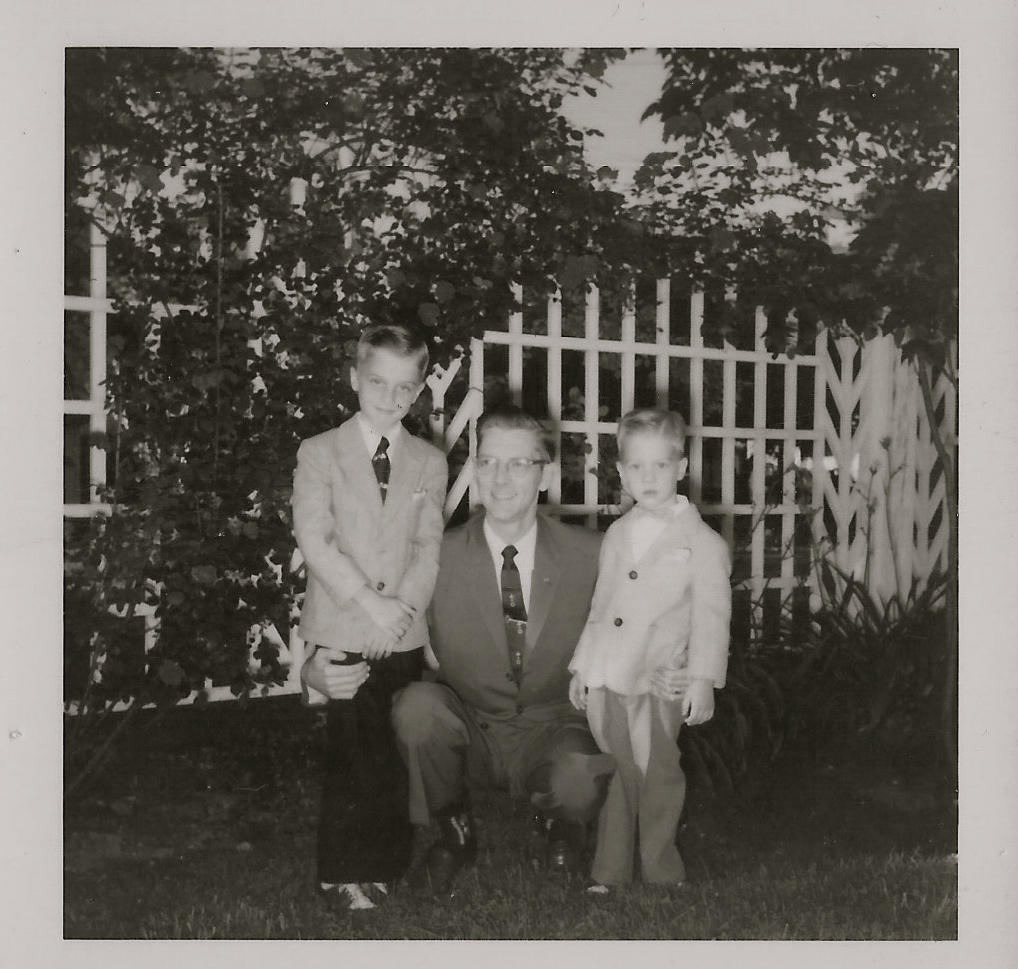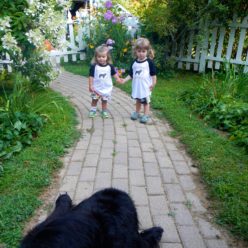As I continue my transition to WordPress.org (and apply Margareta Magnusson’s ideas articulated in The Gentle Art of Swedish Death Cleaning to blogs I have written and photographs I have taken), I shall be revisiting some earlier pieces I have written during the last 15 years or so. I’ll title those pieces Curious David Redux.

[The photo above is of me, Dad, and younger brother Bruce in Grandma Stover’s back yard. I wonder where sister Connie was? Perhaps with Mom.]
The thought piece below first published on September 2, 2008 is actually a slightly revised blog piece I wrote in May of 2004 under the name “Curious David” when I was a community educational blogger for the Milwaukee Journal Sentinel. I was attempting to think through the poential of Internet Learning Tools. Today in 2018 I now am thinking through which of these might lend themselves to maintaining or promoting brain health.
I’m nervous and excited. Time to take off my invisibility cloak. Tomorrow (Tuesday, September 2, 2008 at 8:00 a.m.) I meet in person for the first time with my 20 first-year students. What an immense responsibility to be their first professor!
We’re going to explore “21rst century” learning tools such as blogs, wikis, podcasts, social networks, virtual worlds, and YouTube. The idea for this course emerged from my experiences writing this “Curious David” blog column. Last year’s opportunity to write for “JSonline” was transformative for me as I learned from elementary and secondary school teachers, high school students, virtual school advocates, retired faculty and readers about innovations, challenges and successes they faced promoting learning.
In this first-year seminar we shall focus on some of the 25 free learning tools described by educator Jane Hart. [Here is an updated list I would draw upon were I to teach this course again.] As we examine these learning tools we hope to answer questions such as these:
To what degree can these web tools truly enhance student learning?
To what degree are they just “cool” tools?
Could they be used to develop critical thinking?
Do they improve or degrade communication skills?
Might they be applied to fostering cross-cultural or international understanding?
Might they strengthen or weaken writing skills?
What are their weaknesses or dangers?
Should they complement or replace 20th century learning skills/tools?
How can one evaluate their effectiveness?
[It seems to me it should be possible to produce an evidence-based paper like this to address the questions above.]
My intent is to assist students in the transition from high school to college—and to investigate Web 2.0 learning tools which might be useful across classes and in the workplace. I want to involve them in educational experiences that will develop and enhance abilities in reading, writing, reflecting, presenting, thinking, and producing. Writing exercises will include short in-class and out-of-class reaction papers, journals, blogs/wikis, and exams. Presentations will be both formal and informal; individual and in small groups. Collaboration will be both with fellow students and with me.
Still Curious,
David
